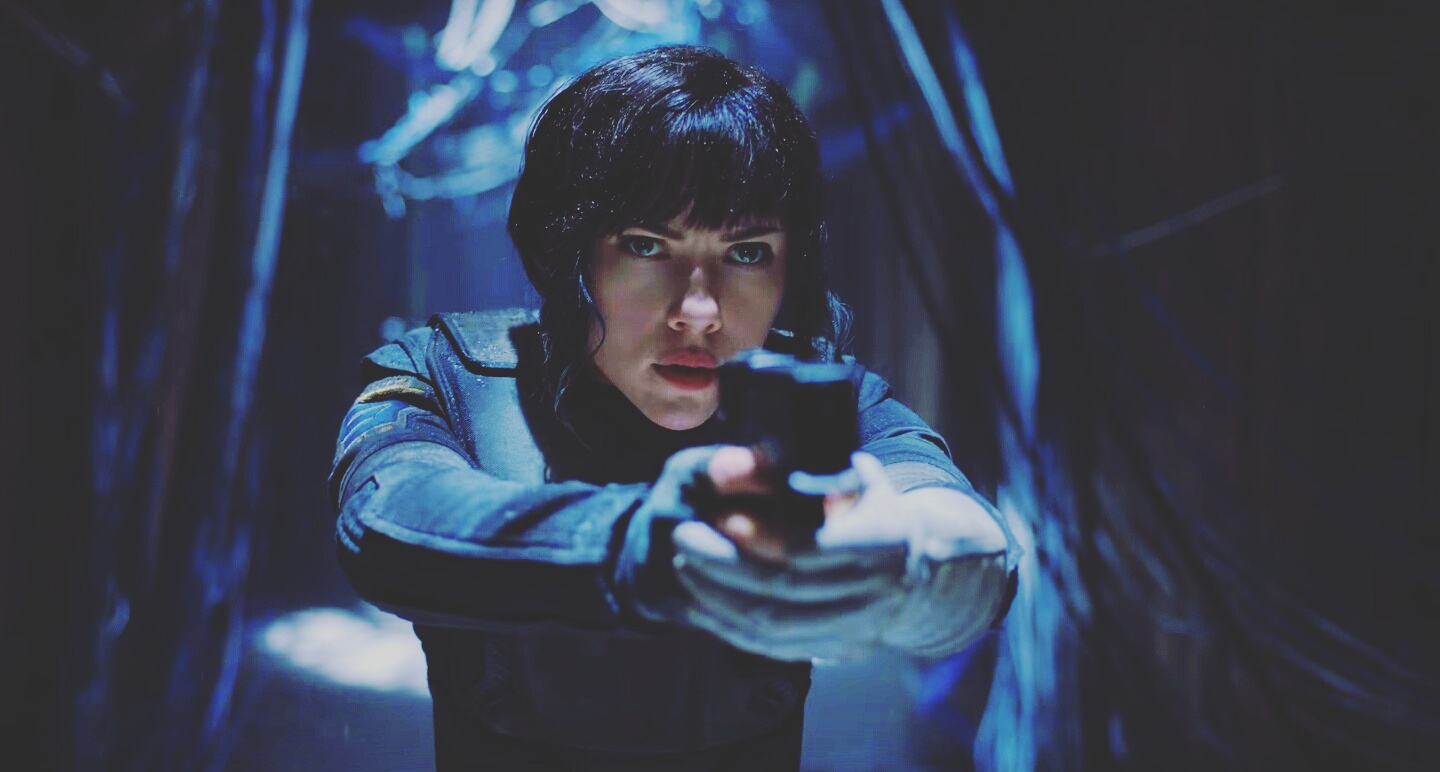
Ghost in the Shell (2017)
A beautiful shell. A haunted ghost. Ghost in the Shell is a fitting adaptation to it’s predecessor, taking on it’s spirit, it’s ghost, and giving it a pristine modern shell.
There are some films that rely on imagery. Where visual storytelling and kineticism are king. Where you dive into another world.
Ghost in the Shell is beautiful, dark, ugly, and haunting. Much like Blade Runner, the world seeks to transfix you.
This version seeks to be far more global than it’s predecessor, more diverse. And while some may claim that white-washing is at play here, there is no better actress to play the Major than Scarlett Johansson. An A-list starlet, rare among her time, possessing an elusive alchemy of strength with grace, and humor with conviction. Making everything look easy, like the Major should. And though I sincerely hope that there’s an English-speaking Asian actress with dramatic chops and action-star qualities somewhere out there in the world, I’m just not sure we’ve seen her yet.
The supporting cast adds some much needed depth to the world. Juliette Binoche, Beat Takeshi and Michael Pitt all bring a sense of legitimacy and realism to what could be a far more hammy movie. Michael Pitt in particular, shows some true torment and pain. Some recklessness and rage.
There are two major criticisms that this film will take on. One will be in regards to it’s story and dialogue, and the thoughts that they’re shallow or empty. The other being that it’s retreading on storytelling concepts long repeated before.
Some of the dialogue and voiceover being hammy, I can buy that. The ending monologue is probably the most egregious moment in the film and would be far better off without it. But what most don’t realize is that the original Ghost in the Shell was a breakthrough for not only science-fiction, but for storytelling as a whole. The Matrix, Avatar, Ex Machina and countless other films were directly influenced by Ghost in the Shell. The dichotomy between human intelligence and artificial intelligence, the integration of technology in our everyday lives, all of these ideas were a genesis for the existential, man and machine concepts and questions so prevalent in our society today.
Leave a Reply